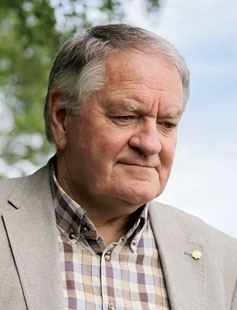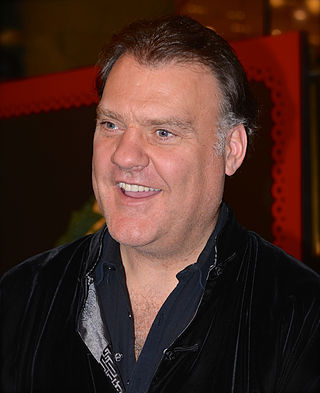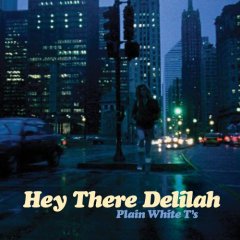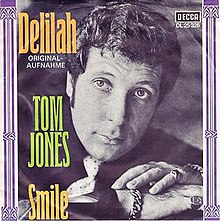
Sir Thomas Jones Woodward is a Welsh singer. His career began with a string of top 10 hits in the 1960s and he has since toured regularly, with appearances in Las Vegas from 1967 to 2011. His voice has been described by AllMusic as a "full-throated, robust baritone".

Dame Shirley Veronica Bassey is a Welsh singer. Best known for her career longevity, powerful voice and recording the theme songs to three James Bond films, Bassey is widely regarded as one of the most popular vocalists in Britain.

Mary Hopkin, credited on some recordings as Mary Visconti from her marriage to Tony Visconti, is a Welsh singer best known for her 1968 UK number 1 single "Those Were the Days". She was one of the first artists to be signed to the Beatles' Apple label.

"You'll Never Walk Alone" is a show tune from the 1945 Rodgers and Hammerstein musical Carousel. In the second act of the musical, Nettie Fowler, the cousin of the protagonist Julie Jordan, sings "You'll Never Walk Alone" to comfort and encourage Julie when her husband, Billy Bigelow, the male lead, stabs himself with a knife whilst trying to run away after attempting a robbery with his mate Jigger and dies in her arms. The song is reprised in the final scene to encourage a graduation class of which Louise is a member. The now invisible Billy, who has been granted the chance to return to Earth for one day in order to redeem himself, watches the ceremony and is able to silently motivate Louise and Julie to join in with the song.

The Music of Wales, particularly singing, is a significant part of Welsh national identity, and the country is traditionally referred to as "the land of song".

Dafydd Iwan Jones is a Welsh singer and nationalist politician who rose to fame writing and performing folk music in the Welsh language. From 2003 to 2010, Iwan was the president of Plaid Cymru, a political party which advocates for Welsh independence from the UK.

Sir Bryn Terfel Jones, is a Welsh bass-baritone opera and concert singer. Terfel was initially primarily associated with the roles of Mozart, particularly Figaro, Leporello and Don Giovanni, and has subsequently shifted his attention to heavier roles, especially those by Puccini and Wagner.

The Wales national rugby union team represents the Welsh Rugby Union in men's international rugby union. Its governing body, the Welsh Rugby Union (WRU), was established in 1881, the same year that Wales played their first international against England. The team plays its home matches at the Millennium Stadium in Cardiff, which replaced Cardiff Arms Park as the national stadium of Wales in 1999.
The Welsh Rugby Union is the governing body of rugby union in the country of Wales, recognised by the sport's international governing body, World Rugby.

Dragons RFC are one of the four professional rugby union regional teams in Wales. They are owned by the Welsh Rugby Union and play their home games at Rodney Parade, Newport. They play in the United Rugby Championship and the European Rugby Champions Cup/European Rugby Challenge Cup. The region they represent covers an area of southeast Wales including Blaenau Gwent, Caerphilly, Monmouthshire, Newport and Torfaen with a total population approaching 600,000 and they are affiliated with a number of semi-professional and amateur clubs throughout the area, including Pontypool RFC, Caerphilly RFC, Cross Keys RFC, Ebbw Vale RFC and Newport RFC.
"Ar Hyd y Nos" is a Welsh song sung to a tune that was first recorded in Edward Jones' Musical and Poetical Relics of the Welsh Bards (1784). The most commonly sung Welsh lyrics were written by John Ceiriog Hughes (1832-1887), and have been translated into several languages, including English and Breton. One of the earliest English versions, to different Welsh lyrics by one John Jones, was by Thomas Oliphant in 1862.
"The Power of Four" is a joint anthem composed for the British & Irish Lions rugby union team. It was written by Neil Myers in 2005. It was commissioned by the Lions head coach, Sir Clive Woodward for the 2005 British & Irish Lions tour to New Zealand as the official song. It was intended to be a universal anthem for the British & Irish Lions to be sung before every game. However it was criticised as being uninspiring as members of the Lions squad did not engage with it and it was also noted that the fans did not like it. It was dropped as the Lions anthem after the 2005 tour and led to changes in the way music would be chosen in future Lions tours.

"Can't Take My Eyes Off You" is a 1967 song written by Bob Crewe and Bob Gaudio, and first recorded and released as a single by Gaudio's Four Seasons bandmate Frankie Valli. The song was among his biggest hits, earning a gold record and reaching No. 2 on the Billboard Hot 100 for a week, making it Valli's biggest solo hit until he hit No. 1 in 1975 with "My Eyes Adored You".

"Hey There Delilah" is a song by American pop rock band Plain White T's, released on May 9, 2006, as an EP from their third studio album, All That We Needed (2005). The song was later released in 2007 as a single from their fourth studio album, Every Second Counts (2006), with added string instrumentation.

"Help Yourself" is a song recorded by Welsh singer Tom Jones in 1968. The song is one of Jones' best known songs and reached number five in the UK Singles Chart in its original run. It topped the charts in both Ireland and Germany, and spent three weeks at the top spot in Australia. The American single reached Billboard peaks of number 35 pop and number three easy listening, and is still widely played on adult-standards radio.

Ysgol Gyfun y Strade is a Welsh-medium comprehensive school and sixth form in the town of Llanelli, Wales. It opened in September 1977 as a mixed gender school. In 2022 there were 1,209 pupils enrolled at the school.

Yma o Hyd is a Welsh language folk song by Dafydd Iwan. The song was released during Iwan and Ar Log's 'Taith Macsen' tour in 1983. Since then it has continued to gain popularity at cultural and sporting events.

Delilah is the sixth studio album by Welsh singer Tom Jones. Released in 1968, it became his first album to reach number one on the UK Albums Chart, spending two separate one week reigns at the top during a run of 14 consecutive weeks in the top 5.

Richard Lewis is the chief constable of Dyfed-Powys Police.

Welsh pop and rock music is popular music of Wales produced commercially in Wales.


















